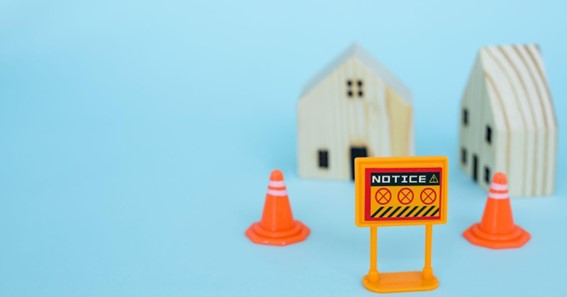House demolition is tearing down an existing house or building to make way for a new construction project. This demolition can be done manually, using heavy machinery such as excavators and bulldozers, or with explosives.
The first step in any successful house demolition project is planning and preparation. Before beginning work on site, contractors must obtain all necessary permits from local government agencies and ensure proper safety measures are taken during the process. They must also carefully review blueprints for existing structures and plans to know exactly what needs to be removed before proceeding with work.
Additionally, contractors must develop clear communication channels between their team members. Hence, everyone knows when specific tasks should be completed or areas should be avoided during the job site clean-up phase.
And speaking of preparation, what are the things that should be taken into account before the hard work begins?
13 Things You Should Consider Before Demolishing Your Home
1. Consider the Cost
House demolition cost varies drastically depending on the size of the building, the type of structure, and any hazardous materials that might be present. Generally, a full-scale demolition project costs range from $15,000 to $50,000. On top of this, additional fees may need to be paid for debris removal, hauling, and disposal.
2. Research Council Regulations
Before beginning any demolition project, you must check with your city council to understand all the applicable regulations and guidelines. This includes identifying any zoning restrictions or permits needed for the work and researching any safety precautions contractors must take.
Depending on the area, local planning departments or neighbourhood associations may seek other approval forms.
3. Know What You Need to Keep
Suppose any existing structures are to be preserved, such as a chimney, set of stairs, or balcony railing. In that case, marking these areas and providing instructions on handling them during demolition is essential.
4. Establish Access Points
It’s important to create good access points for heavy machinery, such as excavators so that the demolition process can be completed safely and efficiently. This may involve removing fences or landscaping elements such as trees or shrubs.
5. Plan for Debris Removal
Demolition projects generate an incredible amount of debris, which must be removed promptly and properly disposed of. Contractors should plan for how this debris will be hauled away and decide if it’s better to bring in a dumpster or hire an outside hauling company.
6. Hire Professional Help
Demolishing a house is no small task and can be dangerous without the proper training and experience. Hiring a professional contractor with experience with this type of work and the necessary insurance coverage is wise.
7. Consider Your Safety
Demolition involves using potentially hazardous materials such as asbestos, lead paint, and other chemicals. For this reason, it’s essential to take the necessary safety precautions to protect yourself and those around you from any potential risks associated with these substances.
8. Don’t Forget Safety Precautions
Safety should be a top priority for any demolition project. Contractors must ensure all workers wear proper safety gear and that all necessary precautions, such as controlling dust or debris, are taken to protect them from potential hazards.
9. Plan for Utility Disconnection
Before beginning any demolition work, all utilities must be disconnected. This includes water, electricity, gas, and sewer lines. It’s essential to contact the appropriate utility companies to arrange for this service and ensure it is completed correctly.
10. Plan for Site Cleanup
Once the demolition is complete, contractors must remove debris from the site and prepare for new construction. This could involve removing existing foundations, grading the land, or backfilling any trenches that may have been dug.
Click here – Guide to Exterior Car Detailing
11. Be Prepared for Unexpected Delays
Demolition projects are complex and often require much planning and preparation. It’s essential to be prepared for potential delays due to weather, difficulties obtaining permits, or safety concerns during the process.
12. Understand Environmental Impacts
Finally, contractors must be aware of their demolition project’s environmental impacts on local ecosystems and take steps to mitigate these effects. This could involve removing hazardous materials properly or preventing pollutants from entering waterways.
13. Notify Your Neighbours
Notifying your neighbours of the upcoming house demolition project is essential, as it will likely cause some disruption. The demolition process can generate much noise, dust, and debris that could affect nearby homes or businesses. Additionally, specific access points must be created for heavy machinery to move in and out of the property. This can mean moving hedges or fences to ensure proper clearance.
By considering these 13 deliberations before beginning a house demolition project, contractors can ensure the job is done safely and efficiently. From obtaining necessary permits to hiring professional help to plan for debris removal, all of these steps will help make your demolition project successful.
If you want a professional house demolition team that also helps process the permits for you, Roach Demolition in Melbourne are your guys!






